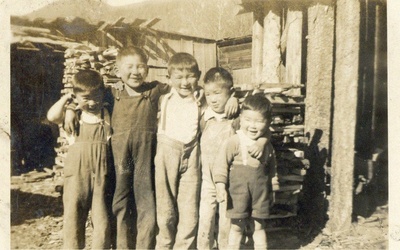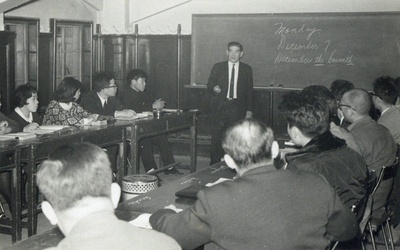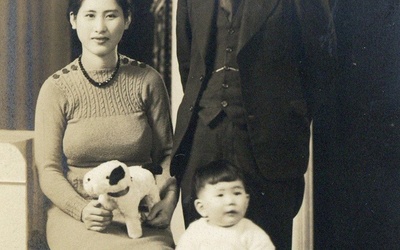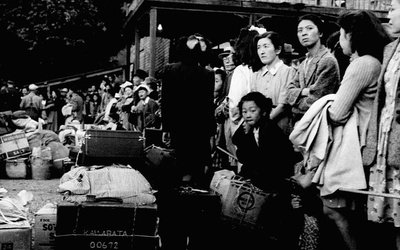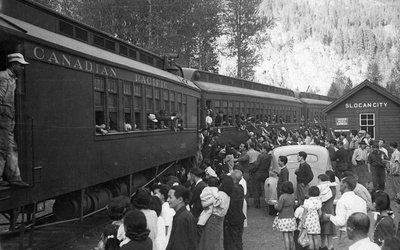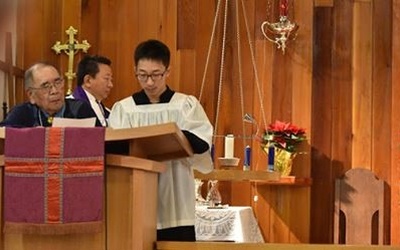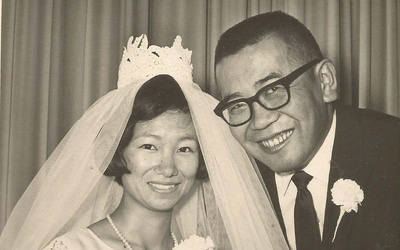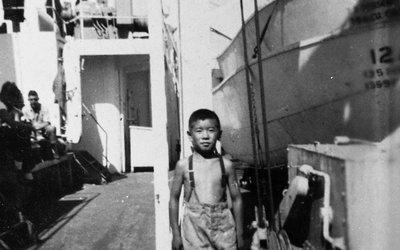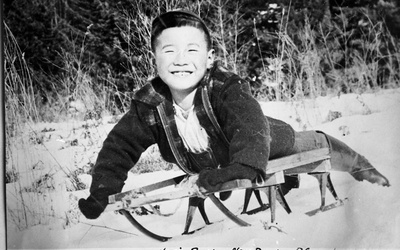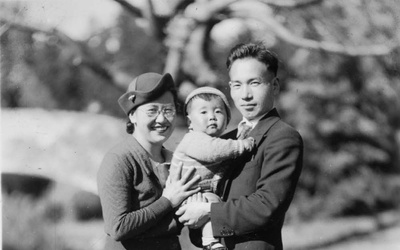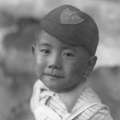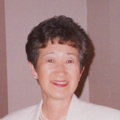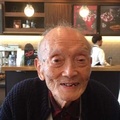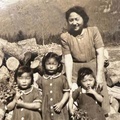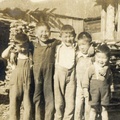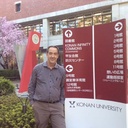
Stanley Kirk
@StanKirkStan Kirk grew up in rural Alberta and graduated from the University of Calgary. He now lives in Ashiya City, Japan with his wife Masako and son Takayuki Donald. Presently he teaches English at the Institute for Language and Culture at Konan University in Kobe. Recently Stan has been researching and writing the life histories of Japanese Canadians who were exiled to Japan at the end of World War II.
Updated April 2018
Stories from This Author
Part 5: Early Childhood in Canada and Deportation to Japan
Dec. 24, 2018 • Stanley Kirk
Mikio Ibuki is a good example of those Nikkei exiles who intended to return to Canada but ended up staying in Japan. He was born in Vancouver on January 1, 1940 as the first child of Suejiro and Mitsue Ibuki. As mentioned earlier, he has a younger sister, Kazuko (born July 9, 1942 in Slocan City), and a younger brother Toshiaki (born November 3, 1944 in Slocan City). He himself was only 2 years and 6 months old when his …
Part 4: Suejiro Ibuki - Exile and Life in Japan
Dec. 17, 2018 • Stanley Kirk
Read Part 3 >> Deportation to Japan after the Internment Suejiro and Mitsue were among the Nikkei who agreed to be deported to Japan rather than move to eastern Canada. Mikio believes that the most compelling reason was extreme anxiety regarding the wellbeing of Mitsue’s parents in Tokyo. As mentioned earlier, there was no contact between the Nikkei Canadians and their loved ones in Japan during the war, and the resulting desperation to reestablish contact and confirm the survival and …
Part 3: Suejiro Ibuki - Pre-War Life in Vancouver, Uprooting, and Internment
Dec. 10, 2018 • Stanley Kirk
One Nikkei who opted for deportation to Japan with his young family instead of dispersal to eastern Canada was Suejiro Ibuki. As he is no longer alive, this profile relies heavily on the recollections of his son Mikio as well as on photographs, personal correspondence, and various official documents related to Suejiro’s life. Fortunately, he left quite a large amount of such materials which have been preserved by Mikio. His Roots and Move to Canada Suejiru was born on April …
Part 2: Historical Background - Life and Living Conditions in Japan
Dec. 3, 2018 • Stanley Kirk
Read Part 1 >> The Journey to Japan and the Conditions That Awaited Them When Canada ended its deportation policy, almost 4000 Nikkei had already been sent to Japan. 34 percent of them had Japanese citizenship (average age 51.6), 15 percent were naturalized citizens of Canada (average age 56.5), and 51 percent were Canadian-born citizens (average age 16.7) (Timmons, D.J. ‘Evangelines of 1946’: The Exile of Nikkei from Canada to Occupied Japan. MA Thesis, University of Victoria, 2011. p.70). Their …
Part 1: Historical Background - Deportation
Nov. 26, 2018 • Stanley Kirk
The Dilemma for Incarcerated Nikkei Canadians: Dispersal to Eastern Canada or Deportation to Japan As World War II neared its end, the Canadian government had to decide what to do next with the Nikkei Canadians it had forcibly uprooted from the British Columbia (BC) coast, dispossessed of their homes and property, and incarcerated mainly in ghost towns in the interior of the province. There was intense pressure to prevent them from moving back to the BC coast. Consequently, in contrast …
Part 7: Basil and the Holy Cross Anglican Church
June 5, 2018 • Stanley Kirk
Read Part 6 >> As noted previously, Basil’s parents had both been active members of the Holy Cross Anglican mission, and as a small child he had attended Sunday school and kindergarten there before the internment. Upon returning to Canada from Japan, he attended the Anglican Church in Vernon with his aunt and grandmother. When they moved to North Vancouver1 in 1954 they began attending a nearby Anglican Church, Saint John the Evangelist. In contrast to those Japanese Canadian Anglicans …
Part 6: Life in Canada
May 29, 2018 • Stanley Kirk
Read Part 5 >> Basil stayed with his grandmother and aunts in Vernon from 1949 till they moved to Vancouver in 1954. He says, “At first, during the internment, they had been at Mento Mine outside of Lilloet, BC, at one of the self-supporting sites.1 My other aunt had stayed in east Lilloet along with my grandmother and grandfather. My grandfather had passed way from old age in Lilloet in 1944. When the war ended, both my aunts’ families and …
Part 5: Exile to Japan and Return to Canada
May 22, 2018 • Stanley Kirk
Read Part 4 >> Exile to Japan Basil was nine years old when his family was exiled to Japan. He was never told the reasons why his parents chose to go to Japan rather than move to eastern Canada. He does not recall them being particularly worried about the fates of relatives in Japan, which was a compelling reason for many other families to choose to go to Japan. However, his mother did tell him much later that she was …
Part 4: Uprooting and Internment
May 15, 2018 • Stanley Kirk
Read Part 3 >> Basil had just graduated from kindergarten when the uprooting and internment started. His father was initially sent with the other able-bodied young men to work on a road camp while Basil and his mother were sent directly from Vancouver to the Slocan City internment camp in eastern BC. He clearly remembers getting on the train to go to the internment camp. It was his first train trip, so it was exciting for him, but he had …
Part 3: Birth and Family Background of Basil Izumi
May 8, 2018 • Stanley Kirk
Read Part 2 >> Basil Tadashi Izumi was born April 25, 1937, in Vancouver General Hospital. He was delivered by Dr. H. M. Shimokura, who later would earn the trust of Japanese Canadians by his treatment of numerous patients in the harsh conditions of Hastings Park and then at Tashme internment camp. Basil has two younger sisters, both of whom were born during the internment. The first, Megumi Grace, was born on April 22, 1944, in New Denver hospital, and …

